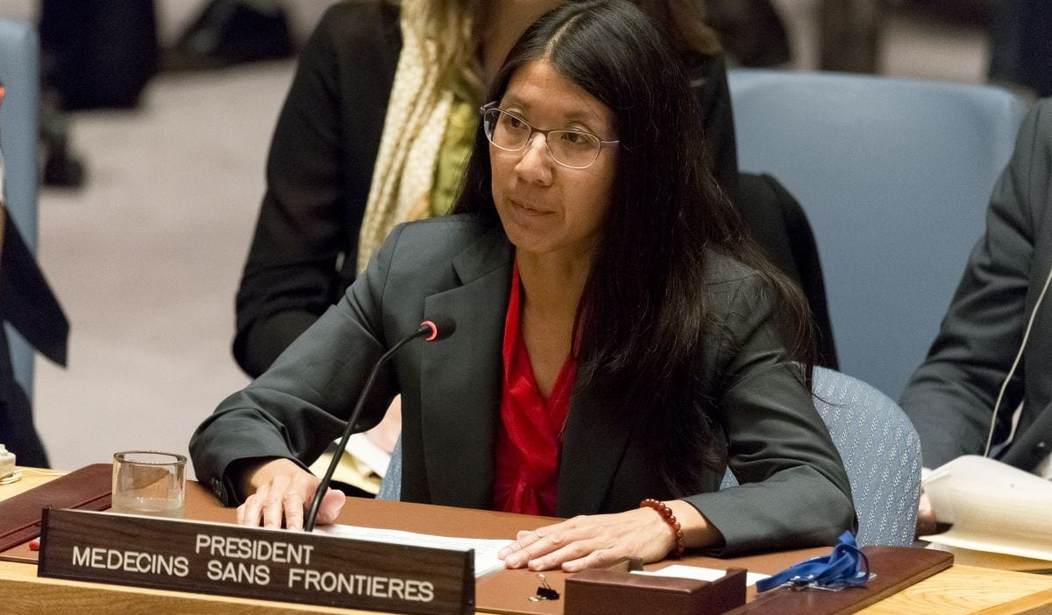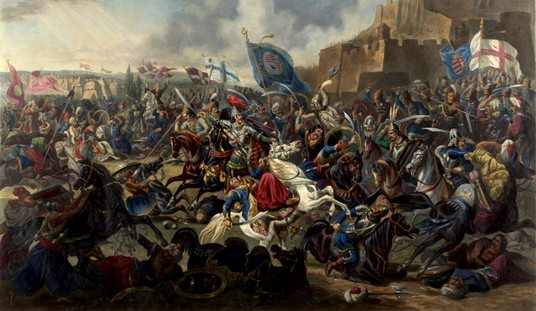The prosecutor’s office at the International Criminal Court (ICC) is preparing to begin an investigation into possible war crimes and crimes against humanity by U.S. military personnel in Afghanistan.
Foreign Policy magazine notes that there is going to be great difficulty for the ICC to actually prosecute Americans due to rules of evidence and other legal factors. But it is significant that an investigation is occurring at all. The prosecutors believe that the U.S. government may not have taken sufficient steps to address what the ICC considers “crimes.”
The prosecutor’s office has repeatedly called attention to alleged abuses of detainees by U.S. personnel between 2003 and 2005 that it believes have not been adequately addressed by the United States. In a report last year, it noted that “crimes were allegedly committed with particular cruelty and in a manner that debased the basic human dignity of the victims.” Bensouda may also want to probe further the attack by U.S. forces on a Médecins Sans Frontières facility in Kunduz that killed several dozen people.
Even once an investigation begins, it is not clear that the prosecutor would ever bring charges against Americans. Doing so would require significantly more evidence than the prosecutor’s office currently possesses. The ICC normally does not interview witnesses, take testimony, or gather forensic evidence during its preliminary examinations, and that work would be just the beginning.
In order to charge Americans with war crimes, Bensouda would likely also have to demonstrate a link between the conflict in Afghanistan and U.S. detention policies, which may not be easy; the United States reportedly brought several detainees to Afghanistan from other parts of the world. Perhaps most controversial, the prosecutor’s office would have to determine that the United States has failed to address allegations of torture through its own domestic prosecutions, investigations, and reviews.
Moreover, any indictments related to Afghanistan would be months if not years away. Because no ICC member has referred the situation to the court, Bensouda will need the approval of a three-judge panel before launching an investigation. ICC judges have approved all three previous investigative requests from the prosecutor (in Kenya, Cote d’Ivoire, and Georgia), but their review can take several months, and the judges might request additional information before authorizing an investigation.
Still, the readiness of the prosecutor’s office to open an investigation represents a sharp setback for President Barack Obama’s administration, which has sought several times to discourage an investigation in Afghanistan and even to avoid ICC mention of possible U.S. crimes. One former U.S. official familiar with the dialogue between the United States and the court described it as cordial, but said that prosecution officials appeared to have decided to include some U.S. activities in their investigation. “They would listen,” the official said, “but it was clear that minds were not being changed.”
There is probably some politics at the heart of the ICC’s decision. Just recently, several African countries pulled out of the ICC, citing the court’s scrutiny of African countries. An investigation into the U.S. would prove them wrong.
The government has rejected all previous efforts of the ICC to investigate Americans, basing their opposition on the fact that we do not pay dues to the ICC and therefore don’t belong. Most legal experts reject that argument, however.
The Pentagon is adamantly opposed to any investigation or prosecution. They believe granting the ICC jurisdiction over American military personnel undermines the military Code of Conduct. This was a point of contention between the U.S. and Iraqi governments when the status of forces agreement was being renegotiated. The Iraqis insisted they had the right to prosecute American soldiers. The Pentagon flatly refused. That’s when President Obama just gave up, broke off negotiations, and brought the troops home.
Several U.S. soldiers have been prosecuted in American military courts as a result of war crimes, so I can’t see where the ICC prosecutors have much of a case. It’s just one more indication of how American power and influence have waned under the presidency of Barack Obama.









Join the conversation as a VIP Member